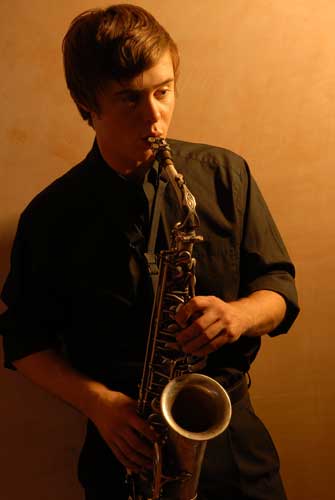Wealth Check: 'Tune up my finances'

Your support helps us to tell the story
From reproductive rights to climate change to Big Tech, The Independent is on the ground when the story is developing. Whether it's investigating the financials of Elon Musk's pro-Trump PAC or producing our latest documentary, 'The A Word', which shines a light on the American women fighting for reproductive rights, we know how important it is to parse out the facts from the messaging.
At such a critical moment in US history, we need reporters on the ground. Your donation allows us to keep sending journalists to speak to both sides of the story.
The Independent is trusted by Americans across the entire political spectrum. And unlike many other quality news outlets, we choose not to lock Americans out of our reporting and analysis with paywalls. We believe quality journalism should be available to everyone, paid for by those who can afford it.
Your support makes all the difference.Matt Fripp, 22, a freelance jazz musician and music teacher, launched a music booking agency fresh from college. But the transition from student to the self-employed world has been tough. An unpredictable income in a recession does not help and he has concerns about how to manage his finances.
"My short-term aim is to build up enough regular work to fund the growth of the agency," he explains.
"Eventually, I want that to be my main source of income. But the insecurity of being self-employed is hard in this line of work. Christmas and the summer months can be busy with gigs but you can end up relying on these to pay for the quieter months."
Case notes
Income: Matt has earned £12,000 from seasonal gigs over the past year, and about £4,500 from teaching.
Monthly outgoings: Matt spends around £1,085, including rent, utilities and phone bills.
Debt: He has a student loan of £20,000 and an overdraft of £900.
Pension: Matt has not yet started saving for a pension.
Savings: £1,200.
Mortgage: None.
Three financial advisers offer Matt help this week: David Brunning of Brunning Newman Houghton, Mel Kenny from Radcliffe & Newlands and Christopher Wicks, the Director of N-Trust-Group.
Budgeting
The good news is that all three advisers believe that Matt's young age is beneficial. "He is at the start of his career planning and wealth building," says David Brunning. "Making sure that income exceeds expenditure should be the monthly priority."
Christopher Wicks also recommends sticking to financial basics for the moment: "His priority is to build up his business – but once things stabilize, he should be look into longer-term planning," he says.
But they also agree that the unpredictability of freelance work and the expense of living in London is a major obstacle to achieving financial stability. Mel Kenny says that the best way of planning for this is to keep detailed accounts of Matt's spending, particularly if cash flow from gigs is variable.
"Matt should draw up a budget of his projected income and outgoings to help with saving," he suggests. "He might be surprised how cheap day-to-day living can be if he looks in the right places."
Brunning is more sceptical about his ability to cut back. "Matt's personal expenses look pared to the bone," he notes. "Any money he can put aside is going to have to come from surplus income."
Savings
Once Matt has his short-term finances in order, the next step should be to reduce debt and create a cushion of cash savings in case of emergencies. The seasonal nature of Matt's gig earnings make this even more important.
His student loan is at a low rate of interest, so any extra payments should go on eliminating more expensive debts including his overdraft. "At that stage Matt needs to build up an emergency fund should he fall on leaner times," says Kenny. "A target of three to six months' expenditure in cash savings should be a priority."
"Matt should adopt the same view with his business accounts," adds Brunning. "Building up and holding £2,500 in the account to meet three months' planned spending before allocating further money to expansion."
But the days of shopping around for high interest saving rates are long gone. "With the Bank of England rate now at 0.5 per cent, interest on anything except the largest balances is irrelevant," he says. "Don't be seduced by short-term ISA season rates, as some providers offer generous rates now and then drop them later in the year."
Investment
Once his debts are under control and he has a cash fund in place, Kenny believes that Matt should focus his investment strategy on equities rather than cash.
Brunning says that Matt's other long-term investment is his music agency. Brunning recommends using low cost methods of advertising to grow the business.
Insurance
Matt's vulnerability to accidents or unforeseen mishaps is one of key risks of his profession. One way to offset this is to consider professional insurance and income protection. "This need not be prohibitively expensive," says Brunning. "It is possible to find income protection for under £10 per month."
And Matt can even insure the parts of his body that are vital for his career. Kenny points out that specialist insurers such as Lloyds can insure against the loss of a finger or hand, which could mean Matt would be unable to work.
For a free financial check-up, write to Wealth Check, The Independent, 191 Marsh Wall, London E14 9RS; or email wealthcheck@ independent.co.uk
Join our commenting forum
Join thought-provoking conversations, follow other Independent readers and see their replies
Comments